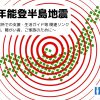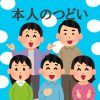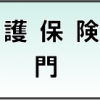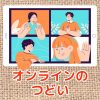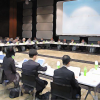ALZHEIMER’S ASSOCIATION JAPAN, MEWSLETTER
“Pole-Pole”
BULLETIN NO、297 April 2005
Summary Translation: HIROSAWA kayoko
Let’s take action for diffusing the knowledge of Alzheimer
and its sufferers.
We are now discussing the name of “Family members’ groups” in order to present it at the General Meeting in the coming June.
The meeting of the directors was held in Kyoto City on the 20th and 21st in this March. During the meeting, we discussed the bills which we are going to present to the General Meeting of June. It was the second meeting of directors since the provisional one held in this February.
All of the directors without Dr. Miyake, vice-president of the Meeting, and the secretariat were present at the Meeting. Candidates for next dictators and the surrogate of editorial board were also present as the observers.
The important subjects of the Meeting were as follows: the summary of the activity in 2004, the plan for the activity in 2oo5, the statement of accounts in 2oo4, and the budget for 2005. (The summary and the budget are inserted into the issue of April and the statement of accounts will be inserted into the issue of May.)
The International Conference in 2004 succeeded and a lot of people came to be interested in Alzheimer thanks to the activity of Alzheimer sufferers themselves and their families. Based on the encouragement among the families and Alzheimer sufferers themselves, this problem will be more deeply understood in the society.
At the meeting, the following subjects were discussed:
(1) What society can we live in safely even if we suffer from Alzheimer?
(2) What activity should we “Family groups” do?
(3) What kind of organization should we make?
We discussed these visions towards 2015 and also discussed the name of the organization in order to fit the tide. (Concerning the name of the organization, a journalist of Asahi Newspaper who read Mr. Takami’s message in the issue of this March interviewed and the content of the interview was reported in that newspaper of 21st in April.)
The followings were discussed and also decided by the new establishment of the directors.
(1) We will have two Vice-Presidents.
(2) We will have permanent directors.
(3) We will have a technical meeting of long-term care insurance, social indemnification, human rights, bulletin, enlightenment, investigation.
(4) We will have a special committee of future vision, dementia of early onset, and international exchange.
(5) The arrangement of directors.
In addition, it was reported that 21st research assembly was held in Gunma prefecture in November. There the 25th commemorative project was practiced and how the donation for Niigata-Chuetsu Earthquake was distributed
As for Dr. Miyake, he would like to resign for personal reasons and it was approved at the Board of Directors. He is a member of the founders of “Family groups.” He had been the chief of the secretariat and also had been the chief of the editing committee for a long time. Moreover, at the International Conference of last year, he worked as the chief of the project and administration. So we will have no Vice-president till next General Meeting.
It was decided that we should start the foundation(1,000) for the international exchange.
Letters from Association members ( Feature article: Group homes)
(1) My mother could enter the near group home.
(Mrs. O.,61 years old, female, Hyogo prefecture)
A new group home was established near hour house. As it takes only 5~6 minutes, we can visit her almost every day. The sufferer got calm after she entered this home. As for me, I can live a peaceful life, without worrying about the schedule of the short stay and about the hour of coming home.
If I desire more, I would like the staffs of the group home to take her to the toilet a little more frequently. I also would like them not to make her stay sitting but to move about. Moreover, I would like them to let her work. I hope that she will stay here as long as possible.
(2) Quality is more important than quality.
(Mrs. F., 48 years old, female Ibaragi prefecture)
It is two years since I asked a group home for the care of my mother-in-law. There seems to be many kinds of group homes. The most important thing is the quality of staffs.
(3) I’m relieved to see my wife’s smile.
(Mr. K., 69 years old, male, Saitama prefecture)
Four years have passed since I began to care my wife(70 years old) who is an Alzheimer’s sufferer. My mind has been getting easy mentally and physically encouraged by members of the Saitama branch, the people of the neighborhood, my son, my daughter. My wife’s illness is going worse and worse day by day. I am relieved by the staffs’ effort to care her and the smile of my wife. I go to see her almost every day.
(4) The education of staff is necessary.
(Mr. F., 74 years old , male, Chiba prefecture)
It is necessary to be strict with the qualification of the staffs of grope homes. In the group homes, there are many “transferred staffs.” The establishment group homes are extremely increasing. It seems that they don’t have enough love for the sufferers. Do you think this is too much demand?
(5) Should my mother enter the froup home or not?
(Mr.I., 55 years old, male, Aichi prefecture)
My wife and I are caring her mother who is suffering From Alzheimer and
needing care of needing level 5. At present we are making use of day care 22 times a week. I sometimes speak to her in a violent language, getting angry with her. In addition, my wife is also bad mentally. I dared to apply for a group home, and in the near future, we are going to talk about it. I’m worried every day because I feel that I have given up the care of my mother and have kicked her out.
As I am a salaried man, my wife has to chiefly care her, including incontinence.
I thank her very much. On the other side, I feel sense of sin towards
my-mother-in-law.
The Psychology of Alzheimer’s Sufferers
(by Dr. Hisao Osada, graduate school professor of Oobirin old-age major)
Dr.Osada’s Profile:Health-Leading Clinical Psychologist/Born in 1951 in Tokyo
Graduated from Waseda Graduate School/A Director of the Board of Caring Dementia Sufferers/Chairman of the Symposium “Family Caregivers” of the Alzheimer’s Disease International Kyoto 2004/A Lecturer of the training course of telephone consultation (Confer Pore-pore No.297)
It is a matter of course to understand the psychology of Alzheimer sufferers
whom we have come in contact with. I would like to write in three series under the
title of “The Psychology of Alzheimer sufferers.” As this is the first time, I would
like to introduce the basic matters when we try to understand the psychology of the
sufferers.
There are two aspects to understand them. One is objectively to know their characteristics. For example, his age, his height and so on. We also have to know the condition of their family. In this approach the followings are included.
(1) What is the function of memory?
(2) What disorder is in the brain?
(3) How is the state of nutrition?
(4) Is there any physical disease?
The other approach is to take the feelings of the sufferers’ as they are. It is
necessary to think about the following subjective and inner state of the sufferers:
(1) Is the sufferer delighted or grieved?
(2) What thought or hope does he have?
Let me show you one of the examples which a doctor told. Please imagine this
scene. At night, a sufferer who has been sleeping in his bed wakes up and feels scared. So he wakes up the family members making loud noise. The family members may not understand his feeling. If we find the symptom of not knowing where he is, we have to notice he is near to Alzheimer. It seems that anyone will feel scared and lonely in the dark room.
In this way, if we know that Alzheimer’s sufferers have irrelevant disorder of the place, and if we sympathize with them, we may understand their feelings. This is the first step to know the sufferers’ characteristics and their inner world.
( continued )
Catch My Heart (This is the page of the message from Alzheimer sufferers.)
New Series –1
Mr. Shunji Ochi, Mr. Terumichi Matsumoto, Mrs. Christine Bryden spoke about their feelings at the Conference. As they wrote books and appeared on TV, we came to know more about their feelings than before. We were very much moved, and at the same time, reflected that we had had the feeling of discrimination in our heart. Mr. Matsumoto appealed in his speech, “Certainly I have disease in my head, but my body is all right. I can carry heavy baggage. I would like to be of help to others.”
What can we do for them to be comfortable? What situation should we make for them to be able to show their strength? They appeals as follow:
(1) I have nothing in my head. I have forgotten everything. I cannot think of anything.
(2) I cannot think of anything. I do not know what to do. I feel I am going far way.
(3) I feel woeful. I am sorry for everything. I want to die.
(4) I think I am a child. I weep every night when I get in the bed. While I am weeping, I get to sleep.
(5) I am doing something for others, so I should not be scolded. I am a fool .It is better I don’t exist.
(This is a report of “Family groups”)
The Start of Hidamari(Sitting in the sun)Meeting
Hiroshima branch—The caregivers’ meeting of dementia of early onset
On a “consulting day,” Mr. M. (a caregiver) came with his wife. As soon as they arrived he said, “Dr. N. at S. hospital in Tokyo appeared on TV said that some sufferers can recover from serenity.” According to Mr. M, he had taken his wife to a hospital where she stayed for forty days for examination and care. In spite of this, she did not recover. I was listening to his appeal for about one hour. He talked about her violence and the confusion in his family. His wife was elegant and her smiling face was beautiful. Her condition, however, got worse and worse, and they could not converse with each other. She may have been understood the situation. For she seemed to know her husband’ anxiety, her own hard life, and her apology for her husband. She even shed tears. When her husband said, “Are you crying?”, she said, “I am suffering from serenity, but my heart is alive.” She was expressing her feeling with her whole body. To see this scene, I was very much moved.
In Hiroshima branch, we have been listening to the male care givers of dementia of early onset since four years ago. We, however, have done nothing. Now we have met a couple of sufferers of dementia of early onset and their various appeals are the signals to “Family groups.” As the result, we knew the necessity of “The meeting of Alzheimers’ sufferers and care givers.”
We had the regular meeting of December two years ago, where we invited Mr. M. There were participants of four male care givers and two sufferers. Listening to these care givers, I would like them to rest a while. But we cannot cure them without doctors. Then Dr. Sadao Katayama said, “If I can be of any help, I would like to you join as a volunteer.” At his words, we decided the place, the day and the person in charge. In this way, “the meeting of the care givers of dementia of early onset” started.
(The representative of Hiroshima branch, Keiko Murakami)

